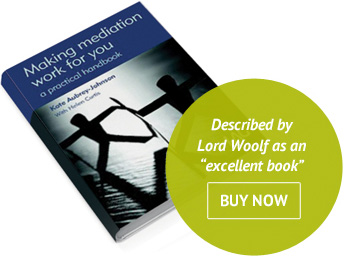Two years ago David Watkinson wrote about mediation in the Anglo-Saxon period. Now, he considers mediation in a different historical context and highlights some comparisons between mediation then and now.
Commercial and Civil Mediation
Blog by Dr Mary Malecka and Abigail Holt of the Garden Court Mediation Team The value of mediation to commercial and civil disputes is that it enables parties to reframe their dispute in a holistic fashion that takes into account the cost of litigation. This includes the personal emotional investment, and the prospect of successfully moving on from the dispute, […]
Mandatory Mediation – The Churchill Case – The end of a beginning?
The Costs Consequences of Refusing Mediation – Are the Courts Going Soft on Sanctions?
Introduction This month David Watkinson reflects on the case-law he has described previously in his blogs on this topic and notes that a reader could have drawn the conclusion that any proposal to mediate had better be complied with or costs consequences will follow. However, more recently, David finds the approach, particularly at High Court […]
Possession Claims Mediation Pilot Re-thought
Welcome to your AI mediation!
Researching Mediation of Medical Treatment Disputes
Dr Jaime Lindsey, currently Senior Lecturer in Law at the University of Essex (soon to be Associate Professor of Law at the University of Reading) is leading this research project to enable in-depth analysis of the use of mediation to resolve medical treatment disputes. Funded by an ESRC New Investigator Grant, the core aim of […]
Mediation – the human element
Helen Curtis reflects on research into how mediation works for people who lack mental capacity. Mediation exists as a process through which the parties in dispute can engage in joint problem solving and decision-making with the aim of facilitating a resolution. In cases where the dispute concerns ‘P’, a person who lacks mental capacity to […]
Where would mandatory mediation take parties?
Margaret Doyle explores questions to be asked about the latest proposals for mediation to be mandatory in small claims in England and Wales. ‘…mediation is in the crucible of politics, economics, professional interests and ideological debate. In this context it is no surprise that it takes on many shapes, forms and value orientations.’ This quote, […]

